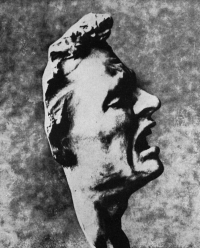AA Alternative Alcohol Treatment Programs

AA Alternatives
How to Stop Drinking
Despite what you may think, AA is just one of many options for alcoholism recovery and treatment.
 Alcoholics Anonymous, a global mutual support group of men and women who’ve had drinking issues, is the granddaddy of alcohol treatment programs.
Alcoholics Anonymous, a global mutual support group of men and women who’ve had drinking issues, is the granddaddy of alcohol treatment programs.
The first of its kind and in existence since the 1930s, you could be forgiven for thinking it is the only alcoholism treatment/recovery group in the world.
But nothing could be further from the truth. There are countless other recovery/treatment/moderation, call-them-what-you-will, groups out there.
Yet you don’t often hear of them, not because they don’t work but because of the long and dark shadow Alcoholics Anonymous and the 12 step program cast over other alcohol treatment programs and recovery.
That’s not to say the 12 step program is bad, far from it, but statistically it is on shaky ground.
But I’m not here to knock AA, you can read that somewhere else if you are interested.
What I want to do is tell you about the other options.
Despite its widespread acceptance, ONLY 5% of alcoholics remain sober after 3 years of attending Alcoholics Anonymous meetings.
Many people try AA and find it is not for them, for whatever reason. And then what do they do? Some go back to drinking, others grit their teeth and deal with a life of no alcohol and yet others do what they have to in their own way.
But it needn’t be like this. AA is a one size fits all outfit. Being human we are all unique and so require different approaches. AA suits some and not others. Don’t give up just because you can’t connect with Alcoholics Anonymous and their way.
Most importantly no one alcohol treatment programs needs to be taken in isolation, you can combine them, whatever keeps you off drink. So go to a moderation management group and, at the same time, you can be taking the Chinese herb Kudzu to relieve your cravings. Perhaps you could attend women for sobriety meetings AND AA meetings.
taken in isolation, you can combine them, whatever keeps you off drink. So go to a moderation management group and, at the same time, you can be taking the Chinese herb Kudzu to relieve your cravings. Perhaps you could attend women for sobriety meetings AND AA meetings.
Remember these are self-help groups. You are helping yourself, you don’t owe anyone else, use the options here to get better, and if that means using all the resources available to you, then do it.
Maybe you will find these alternatives are not for you, fine but at least you tried.
If you are looking for information about treatment centers (outpatient or residential) then contact a dedicated treatment specialist, to learn more.

Alcohol Treatment Programs
Women For Sobriety
As it says in the name, Women for Sobriety is a self-help program for women recovering from alcoholism. It is a group whose purpose is to guide and help all women reach their paths to recovery throughout discovery of self, achieved by sharing hopes, encouragement, and experiences, with other women in related circumstances.
Women have particular issues and problems surrounding their alcohol dependence, so it makes sense for a dedicated group to address them.
For more read Women for Sobriety.
Alcohol Treatment Programs
Breakthrough Plan For Alcohol Addiction
Debbie the Coach offers a non-12-step, unique treatment program for people with alcohol addiction. She combines research-proven anti-craving medications with individual online coaching.
It doesn’t matter what part of the world you are in, you can be connected via skype video (or phone). Debbie the Coach uses the latest research-driven techniques for recovery and designs a comprehensive plan unique to each client.
For more on these anti-craving medications, read Reducing Alcohol Craving With Medication.
Alcohol Treatment Programs
Moderation Management and Drinking Responsibly
Although many alcoholics will have to completely abstain from alcohol in order to recover, there are those who may be able to return to drinking responsibly.
There is a self-help group that provides the tools and help to do this. It is called Moderation Management.
Home Alcohol Treatment
Giving up drinking without attending a residential alcohol treatment center is a viable option.
Although not suitable for everybody, home alcohol treatment can be just as effective as traditional 12 step methods. For more, read home alcohol treatment.
Orthomolecular Alcoholism Treatment
Using various vitamins and supplements the physical damage that alcohol has caused the individual is, at least in part, reversed.
On top of this logotherapy, peer groups and counseling are employed to help the alcoholic stop drinking and get better.
For more read Orthomolecular Alcoholism Treatment.
It was founded by Dr. Joan Matthews Larson after her son died from addiction. He had tried, in vain, one of the conventional 12 step programs.
It has had relative success in treating addiction using the unique approach that is orthomolecular medicine.
The Sinclair Method
Used extensively in Finland it has a 90% success rate. AA has a three year success rate of just 5%.
Why, then, is it not particularly well-known in the U.S./U.K.?
Read the Sinclair Method for more.
How To Stop Drinking
Christian Alcohol Rehab
Spirituality is often an important element in treatment of, and recovery from, alcoholism.
However, it is generally a rather vague spirituality, and it is left up to the individual to define their own notion of the spirit.
Christian alcohol rehab, on the other hand, is treatment and recovery based on the teachings and life of Jesus Christ.
And it works, statistically you are more likely to quit drinking and suffer less relapses if you enter Christian Alcohol Rehab.
Baclofen, A New Alcoholism Treatment
But now, a French doctor has used it to ‘cure’, his alcoholism. So much so that he is able to drink, if he wants, without any ill effects or loss of control.
Read New Alcoholism Treatment for more on this potentially life-changing discovery.
Alcohol Rehab For Women
The reasons and causes for this are many.
But one thing is for certain, the issues and problems they face are, in the main, very different from those faced by men.
That is why there is such demand for alcohol rehab for women.
Alcohol Rehab For Women
The reasons and causes for this are many.
But one thing is for certain, the issues and problems they face are, in the main, very different from those faced by men.
That is why there is such demand for alcohol rehab for women.
Lifering Secular Recovery
There are, however, other groups in which spirituality plays no part.
One of these is Lifering Secular Recovery.
Medication For Alcoholism
For more on these FDA approved medicines read medication for alcoholism.
Secular Organization For Sobriety
Religious beliefs are private and not a prerequisite for the group. Meetings are flexible, not substance specific and there are no prayers (obviously) or mentoring. For more, read Secular Organization For Sobriety.
Kudzu Alcoholism Treatment
Although it has been used in Chinese medicine for more than 500 years, it is only recently that its value for treating alcoholism has come to the notice of addiction specialists
For more read Kudzu alcoholism treatment.
AA Alternatives
SMART Recovery
SMART Recovery is a non-profit organization that helps people to break addictive behaviors.
While the group’s philosophies and teachings aid those who wish to stop other so-called vices, they’re mainly known as an alternative to AA for alcoholics that wish to stop drinking.
For more on this recovery program read SMART recovery.
This approach believes that it is unreasonable to think that you can force people to be abstinent from alcohol, just look at the failure of the alcoholism treatment industry which promotes alcohol abstinence as the only way.
A new approach is needed, one that reduces the harm that alcohol abuse causes people, and treats them in a compassionate and non-judgmental way.
Read Alcohol Abstinence vs Harm Reduction to learn more about this original approach.
Rational Recovery
At the heart of his program is the AVRT – Addictive Voice Recognition Therapy
For more read Rational Recovery.
Read alcoholism forums for more info on how to evaluate alcoholism forums and a selection of some of the best forums dealing with alcoholism on the web.

I am a Mental Health Counselor who is licensed in both New York (LMHC) and North Carolina (LCMHC). I have been working in the Mental Health field since 2015. I have worked in a residential setting, an outpatient program and an inpatient addictions program. I began working in Long Island, NY and then in Guelph, Ontario after moving to Canada. I have since settled in North Carolina. I have experience working with various stages of addiction, depression, anxiety, mood disorders, trauma, stages of life concerns and relationship concerns.
I tend to use a person-centered approach which simply means that I meet you where you are and work collaboratively to help you identify and work towards accomplishing goals. I will often pull from CBT when appropriate. I do encourage use of mindfulness and meditation and practice these skills in my own life. I believe in treating everyone with respect, sensitivity and compassion.
I recognize that reaching out for help is hard and commend you for taking the first step. We have professionals available who would be happy to help you move closer to reaching your goals related to your drinking concerns. You may reach these professionals by calling 877-322-2694.
